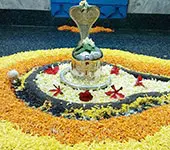The term 'role reversal' highlights the shift between the Vedic religion and Zoroastrianism. These two traditions, despite sharing roots, diverge sharply.This change is linked to Zoroaster, the founder of Zoroastrianism. He rebelled against the Vedic religion and created a new religious order.
1. Zoroaster’s Rebellion: A New Order
Zoroaster rejected the dominance of Indra. He promoted Varuna, who he saw as Ahura Mazda, as the supreme god. In the Vedic texts, Varuna is often called Asura. This title originally meant 'mighty one' but later took on negative meanings. Zoroaster’s defiance inverted the roles, making Ahura Mazda the highest god and Indra a lesser spirit.
2. Indra: From God to Demon
In the Vedic religion, Indra is the king of gods. He is a warrior and brings rain. The Rigveda praises Indra for slaying Vritra and releasing the waters.
In Zoroastrianism, Indra’s role is reversed. He becomes a demon, a Daeva, opposing Ahura Mazda. This shift shows Zoroaster’s rejection of Indra’s power. He transformed a central Vedic god into an evil force.
3. Devas and Ahuras: Swapped Roles
In the Vedic religion, the Devas are good gods. They control natural forces like fire and water.
In Zoroastrianism, Daevas are demons. Ahuras, who were once lesser beings, are now seen as good. Ahura Mazda is their leader. This change marks a clear shift in values, where good and evil roles are swapped.
4. Yama and Yima: Different Paths
Yama, in the Vedic tradition, is the god of death. He rules the afterlife and is the first mortal to die.
In Zoroastrianism, Yima plays a different role. He presides over a golden age. Yima is not connected to death but to life. This change shows a shift in how life and death are viewed.
Conclusion
Zoroaster’s rebellion led to a major shift. He redefined the gods and their roles. This inversion of values created a new religious framework. It marked the separation of Vedic and Zoroastrian beliefs. The changes reflect Zoroaster’s challenge to the old order, creating a new path for his followers.
Comments
Read more comments
Knowledge Bank
How many days was taken to complete the whole Mahabharata?
Sage Vyasa wrote Mahabharata in three years (Adi Parva.62.52). The battle at Kurukshetra was fought over eighteen days.
How many hands does Durga Maa have?
Durga Maa has got a thousand hands, but she is famous as the eighteen-handed Goddess. This is mentioned in the Vaikrithika rahasya of Durga Saptashati - अष्टादशभुजा पूज्या सा सहस्रभुजा सती.
Quiz
Recommended for you
Observe dharma as per your financial and physical capacity

Shiva's Blessings for Marital Bliss: The Power of Gauri Natha Mantra

Listen to this Mantra to invoke Lord Shiva's blessings for a happy and harmonious married life, bringing love, understanding, and unity to your relati....
Click here to know more..Hariharaputra Moolamantra

ॐ ह्रीं हरिहरपुत्राय, पुत्रलाभाय शत्रुनाशाय, मदगजवाहना�....
Click here to know more..